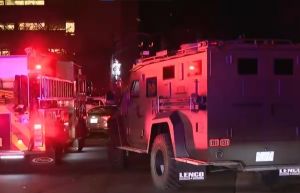The NFL finally acted today in response to the Ray Rice and Adrian Peterson domestic violence cases, ratifying a new personal conduct policy for players and other employees of the league.
The policy, which will goes into effect immediately, was unanimously ratified by the NFL's 32 owners during a meeting in the Dallas-area. It keeps the leagues toughened disciplinary guidelines, implemented in August, for cases of domestic violence -- a six game suspension for a first offense and a lifetime ban, subject to review after a year, for a repeat offense -- and establishes a committee of owners to oversee disciplinary matters.
Also under the new policy, NFL Commissioner Roger Goodell will no longer offer initial disciplinary rulings in cases of misconduct. According to Goodell, the league will hire a disciplinary officer as soon as possible but he will remain in charge of hearing and resolving appeals of any such decisions.
There is also a mechanism contained in the policy which allows a player to be placed on paid leave after being charged with a violent crime, pending the resolution of their legal case.
"The policy is comprehensive," Goodell said, according to a report from Mark Maske of The Washington Post. "It is strong. It is tough. And it is better for everyone associated with the NFL. I have stated it many times: Being part of the NFL is a privilege. It is not a right. The measures adopted today uphold that principle."
Meanwhile, the NFL Players Association responded with a statement voicing their displeasure at what they deemed the league's "unilateral" imposition of the policy.
"Our union has not been offered the professional courtesy of seeing the NFL's new personal conduct policy before it hit the presses," the NFLPA said, per Mike Florio of NBCSports' ProFootballTalk.com. "Their unilateral decision and conduct today is the only thing that has been consistent over the past few months."
The NFLPA plans to scrutinize the policy for any terms or conditions which would fall under the mandatory duty to collectively bargain, and seek relief via "system arbitration" under the collective bargaining agreement.
The NFL's executive V.P. of operations, Troy Vincent, dismissed their concerns.
"People who don't like discipline are those who have committed a criminal act," Vincent said during a conference call today, via Florio.
The league, according to Maske, contended that Goodell's changing role in disciplinary processes does not need to be collectively bargained because he is assigning initial disciplinary rulings to another member of the league office -- something he is permitted to do under the current CBA.
© 2025 HNGN, All rights reserved. Do not reproduce without permission.








